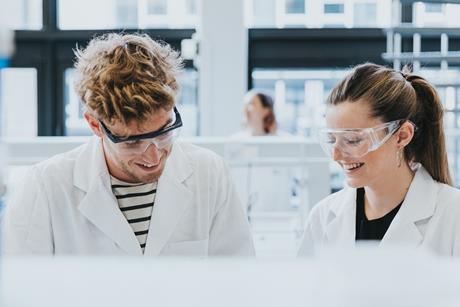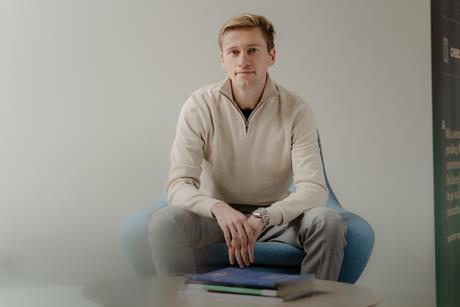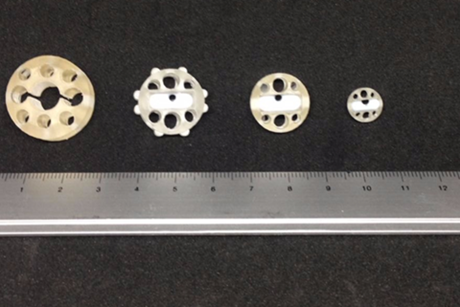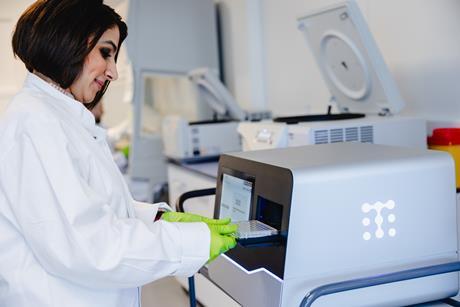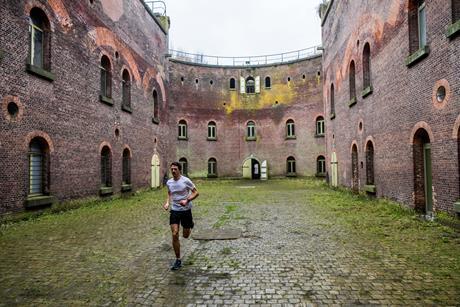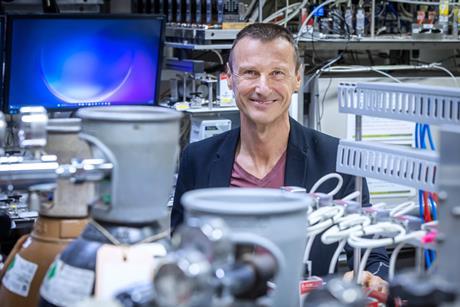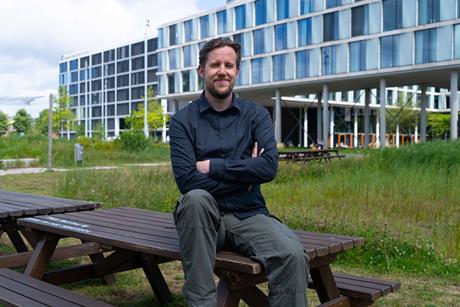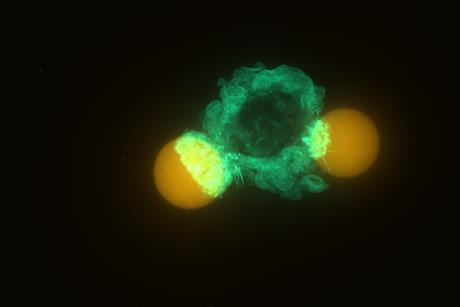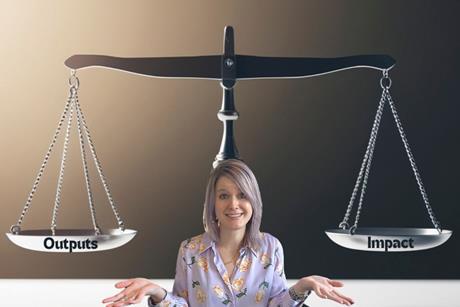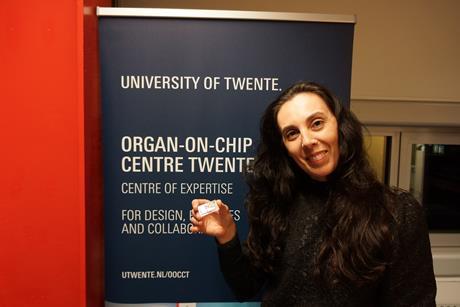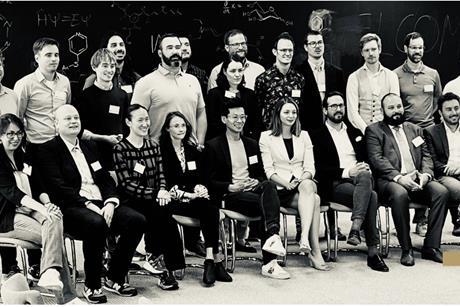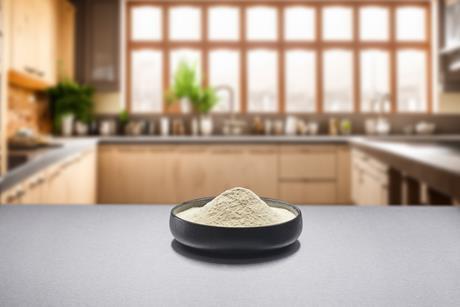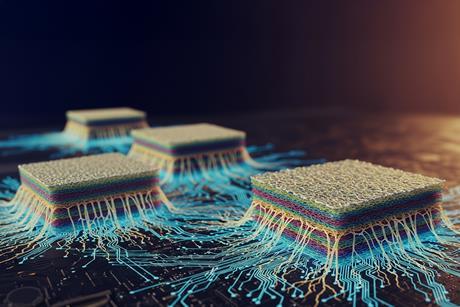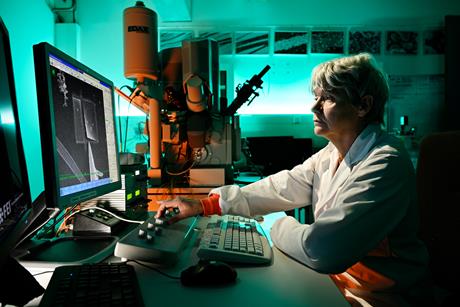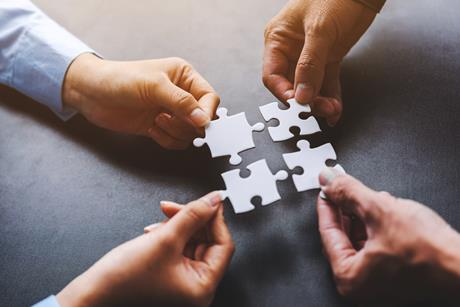Feature articles
Un nouveau graduat comble le manque de profils en laboratoire
Trois hautes écoles flamandes ont uni leurs forces pour lancer un nouveau graduat destiné aux assistants de laboratoire. La formation en assistance de laboratoire s’appuie sur les anciens graduats en biotechnologie et en chimie. Le programme a été actualisé et renommé afin de mieux correspondre aux réalités du terrain. « ...
Endosser deux rôles
Pour Filip Van Lijsebetten (29 ans), le passage était presque naturel : durant son doctorat, il s’est senti de plus en plus attiré par le rôle d’agent de brevets. « Parfois, il s’agit d’inventions pour des boîtes à gâteaux, parfois pour du papier toilette. »
Du projet amateur à l’outil de haute précision
Les imprimantes 3D permettent de concevoir des équipements avancés et sur mesure à un coût accessible. Cette approche englobe aussi bien l’impression de composants spécifiques que la transformation de l’imprimante elle-même en robot de laboratoire. « Autrefois, les chercheurs construisaient eux-mêmes les dispositifs nécessaires à leurs expériences. »
Transfection en douceur
Introduire de grosses molécules dans une cellule peut se faire de manière brutale, mais cela endommage souvent la cellule. La start-up gantoise Trince mise sur la photoporation, une méthode de transfection unique qui préserve la santé des cellules tout en étant adaptée aux applications de criblage à haut débit.
Podium : Hannes Sels
Nos membres donnent couleur et sens à la chimie et aux sciences de la vie. Mais qui sont-ils ? Cette fois, nous vous présentons Hannes Sels, coordinateur de la recherche « Industrie circulaire » à la Karel de Grote Hogeschool.
« L’industrie ne peut se passer de véritables chimistes analytiques »
Pour faire face à la pénurie de chimistes analytiques, les entreprises misent notamment sur l’automatisation. « C’est l’évolution la plus marquante de notre discipline », explique Gert Desmet, expert en chromatographie. « Et elle rendra le métier de chimiste analytique plus attractif. »
La collaboration entre l’industrie et le monde académique éclaire l’analyse des polymères
Agilent Technologies, entreprise spécialisée dans les instruments scientifiques, et le CAST du HIMS de l’Université d’Amsterdam unissent leurs forces afin de mieux comprendre les polymères au sein d’un laboratoire automatisé.
La cellule immunitaire agit comme un serpent étrangleur selon une étude sur l’hydrogel
Les micro-particules d’hydrogel peuvent servir de véhicule pour mesurer les mouvements cellulaires en trois dimensions, comme le montrent des chercheurs de Wageningen. Comment les fabriquer et les utiliser est détaillé dans leur publication complète dans Nature Protocols.
Publishing papers or creating impact?
As AI tools flood the academic system with manuscripts, the publishing world is under growing pressure. Isabelle Kohler argues that academia has drifted from asking why we do research to measuring how much we produce – and calls on researchers to shift their focus from outputs to genuine scientific and ...
The diversity we already have, the inclusion we still need
Despite growing diversity among students and staff, Dutch academia’s leadership and public platforms still lack inclusion. In her column, Isabelle Kohler argues that voluntary selection systems maintain exclusion and calls for concrete action to ensure decision-making reflects the whole academic community.
Podium: Liliana Moreira Teixeira Leijten
Our members form the beating heart of our societies. Here, we regularly highlight one of them. This time, it’s NVBMB-member Liliana Moreira Teixeira Leijten.
Early-career chemists want more trust and less bureaucracy
Last summer, the inaugural Next Generation Leaders in Dutch Chemistry Summit was held at the Lorentz Centre in Leiden. During the five-day event, a group of early-career chemists (NXTGN25) from academia and industry collaborated to develop a shared vision for the future of chemistry in the Netherlands. This resulted in ...
How to stay creative in academia?
Isabelle Kohler reveals the dual system that has kept her ideas flowing: creating deliberate space for the mind to wander through low-key activities and implementing practical capture methods to store ideas when they emerge.
Move over, Matrigel – synthetic medium sets new standard
Matrigel, which is based on tumour tissue from mice, is currently the undisputed leader in the cell culture media market. However, the Nijmegen-based start-up SBMatrices is causing a stir with its fully synthetic, animal-free gel, Fybrix, which provides an equally good environment for cells and delivers consistent results.
The virtuous circle of daring
A major barrier to professional growth may not be a lack of opportunities, but a lack of daring. Isabelle Kohler reflects on her year of taking calculated risks – from pursuing unconventional ideas to setting boundaries – and how daring creates a self-reinforcing cycle that transforms careers and builds lasting ...
Fungal powder to feed the world
Fermentation has a positive ecological footprint. Dutch start-up The Protein Brewery uses this process to ‘brew’ a fungus that is a highly nutritious, complete source of protein. ‘We are becoming more aware that animal proteins alone are insufficient.’
Silky smooth transition from bachelor to PhD
After completing two bachelor’s degrees in Spain, Cristina Izquierdo Lozano bypassed the master’s degree-route and started her PhD research at Eindhoven University of Technology. Her pursuit of new acquaintances led her to take up aerial silks.
‘Breakthroughs in science emerge bottom-up’
Multidisciplinary research is one those buzzwords that pop up everywhere. But creating an environment where scientists are eager to share their expertise requires more than mere lip service, says ICMS scientific director Jan van Hest. ‘Multidisciplinarity is not just a box to be ticked, but it is an absolute prerequisite ...
The scientist’s eyes
Studying nanostructures at near-atomic resolution is the bread and butter of the ICMS Center for Multiscale Electron Microscopy. Here, Heiner Friedrich and his team are continuously improving these already advanced techniques to provide an even more accurate view with minimal noise and high throughput.
The matchmaking concierge
Creating a stimulating, mutually beneficial interaction between science and industry is the priority of the ICMS Industrial Consortium. ‘We try to meet the needs of all participants: ICMS, university faculty, industry and start-ups.’


